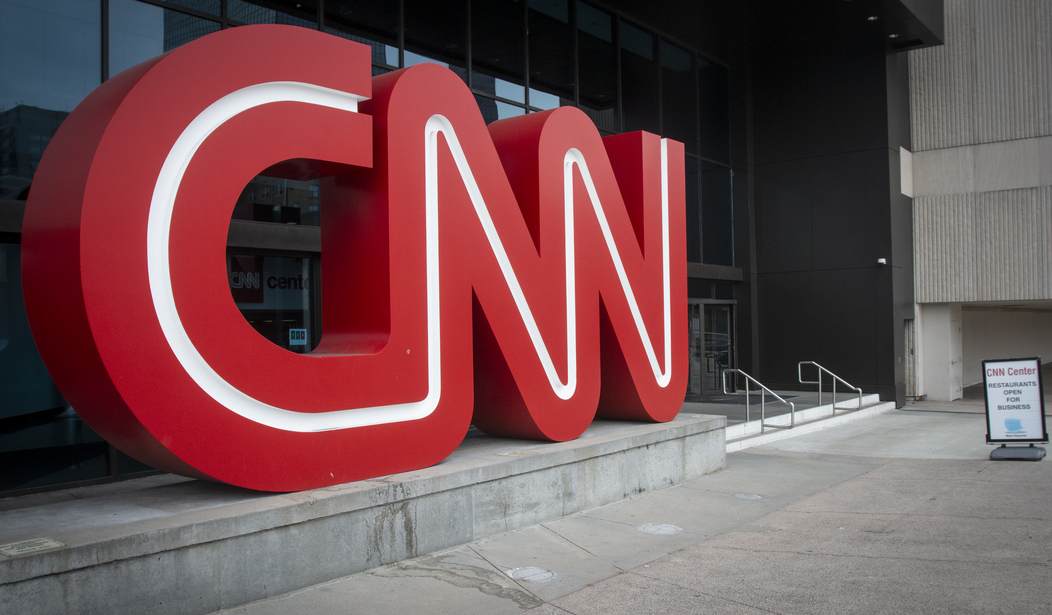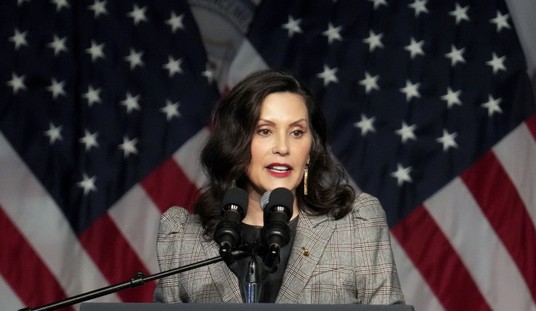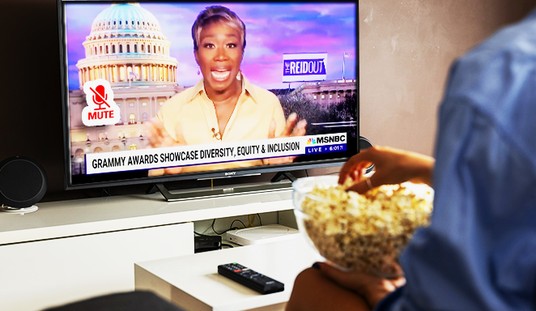With President Donald Trump and his administration moving at full speed for his second term, Democrat-supported and -appointed judges have put a stop to many such plans. The term "constitutional crisis" has been thrown around quite a bit, including and especially on CNN, where there have been some heated conversations.
During Monday's episode of "The Source with Kaitlan Collins," there was plenty of fearmongering about how, three weeks into Trump's second term, "there are warnings that the U.S. is dangerously close to a constitutional crisis."
Not only did Brian Stelter promote such a clip, he also highlighted an "analysis" from Joan Biskupic, "As Trump team overhauls government, a constitutional crisis looms." The CNN homepage also advertises another "analysis" piece, this one from Stephen Collinson, on how "Trump’s following his campaign promises, but they’re threatening the rule of law."
CNN's homepage headline right now: "Constitutional crisis looms as Trump overhauls government"
— Brian Stelter (@brianstelter) February 11, 2025
Read @JoanBiskupic's analysis here: https://t.co/tQPzbk9hxc
For all of Collins' freaking out about the timeline of three weeks, with Trump actually doing what he promised to do, it's worth reminding that there were no such freakouts from Democratic allies in the mainstream media when it comes to the coverup that President Joe Biden was supposedly fit for office, for the four years of his term. When the media did react, it was too little too late, and there were no doubt ulterior motives afoot when it came to urging Biden to be replaced, as he ultimately was, by then Vice President Kamala Harris, so Democrats would have a better chance at winning last November.
There were also concerns about a "constitutional crisis," as Republican communicator Matt Whitlock pointed out in a quoted repost of Stelter, given there were no freakouts over Biden pardoning his family members and others close to him, defied court orders and bragged about it, and also, in the last days of his term, insisted, including over social media, that the 28th Amendment was part of the Constitution.
Recommended
"Nobody takes this seriously anymore," Whitlock added.
Amazing that we weren’t close to a “constitutional crisis” when Joe Biden pardoned his family members and allies, defied court orders on policies he knew were illegal, and tried to tweet amendments into the constitution.
— Matt Whitlock (@mattdizwhitlock) February 11, 2025
Nobody takes this seriously anymore. https://t.co/HL4231Jegn
Scott Jennings is still on hand to offer a conservative perspective, which he did that same night when bringing up the idea of a constitutional crisis on "CNN NewsNight with Abby Phillip."
In reference to Vice President JD Vance's post on X about judges and authority, Jennings spoke to a difference in powers. "Well, I think there's a difference between saying whether you're complying with the law and then you have these individual district court judges setting effectively broad federal policy that is specifically reserved for the president of the United States," he offered, going on to mention this constitutional crisis and who is at fault.
"I think we do have a constitutional crisis and it's being caused by these judges. They're not here to tell us how to spend the money. They're not here to set broad federal policy. That is the president's job as elected by the people. These judges are supposed to be settling discreet, specific matters, not policy setting," he continued, even as Phillip tried to jump in there. "I think Vance is right. I think Trump has a point. And these judges want nothing more to continue the lawfare against Trump."
When she did speak, Phillip began her point by making it that Jennings is agreeing with the president, rather than the substance of his argument.
"I don't think anybody's going to be surprised to hear that you think Trump is right. However, just on a real important technical point here, one of the disputes, one of the main disputes is whether the executive branch can just decide not to spend money that another co-equal branch has said ought to be spent. So, it's not just about forcing the federal government to spend money. It's saying Congress said you need to spend this money this way and the executive branch saying, no, I don't feel like it, and the courts say you have to comply with the spending," Phillip offered.
Jennings responded by further explaining the substance of his point, rather than just making it about Trump, Vance, or judges. "Well, my answer to that simply is It is the executive branch's job to figure out how to spend money once it is appropriated by Congress. And sometimes they spend money that's not been appropriated, but the correct political control is between the executive and the Congress, not some random federal judge," he argued.
Gretchen Carlson then jumped in with another favorite talking point of Democrats, the left, and Trump opponents: January 6th. "And for people who think that President Trump has not planned all of this, he pushes the envelope constantly. There was January 6th. He has a myriad of people out there that would support the executive branch being able to rule over the judicial branch, because there have been no repercussions. And when there are not consequences and when there are not repercussions, you get away with it," she insisted, though many January 6 defendants went through hell at the mercy of a weaponized and politicized Department of Justice (DOJ) under the Biden administration.
As Jennings seized on Carlson's anti-Trump narrative, offering that Carlson "want[s] individual federal judges who hate Donald Trump... to tie him up for four years," she claimed she did not, though what she did want was not clear.
"If you want a big policy question decided, let the Supreme Court do it. But in the interim, the executive has to be allowed to govern," Jennings passionately continued. That may very well happen with one of Trump's executive orders that has already been stopped by multiple judges, which is to end birthright citizenship. Jennings was "fine" with letting matters go to the Supreme Court, though he did insist that "you can't tie [Trump] up until it gets there."
Jennings received an assist from another panelist, former Gov. Chris Sununu (R-NH), who pointed out that Jennings is "absolutely right in that the court cannot say you have to spend these dollars today."
Sununu also reminded how it works with these judges, adding, "It's all judge-shopped by the way. Judges don't randomly get these cases. There's a reason that these cases are filed in Boston, the Boston court or district, Rhode Island, because they know they're going to get a judge," before Phillip and other panelists jumped in.
Jennings spoke up to highlight how Sununu "raised the right point," which is, "Should the president, the singular president, should he have to share the presidency with 300 district court judges?" As Jennings sees it, the answer is clear. "No, absolutely not," he stressed.
Alencia Johnson, a former senior advisor for Harris' 2024 campaign, tried to point to how it worked under the Biden administration, and "that there have been judges that shut down some of President Biden's executive actions, and they understand, the Biden administration understood that he ignored the checks and balances." She got quite heated in her changed tone after Jennings exposed such a point for how laughable it is, especially since Biden openly defied and bragged about doing so when it came to the Supreme Court's ruling on student loan debt, with Phillip herself claiming that Biden "actually didn't ignore it," though there were countless examples of him doing so after that June 2023 ruling.
The panel discussion got quite heated from there, though Jennings and Elie Honig, CNN's legal commentator, were able to discuss when they think a president should defy a judge's ruling. "If a district court judge tries to usurp the authority of the chief executive of this country, he should absolutely defy it," Jennings argued. "There's a difference between broad policy decisions and discrete disputes between parties. That's the difference. If I want a policy decided, I'll take it to the Supreme Court."
When Johnson tried to bring up "checks and balances," Jennings countered by asking "who elected" these district judges?
As she increasingly seemed to be losing her patience, Phillip talked down to Jennings, even framing it as how she'll "explain a little bit more slowly," although, as Jennings reminded her, they just have their positions, which are different ones, and they can disagree.
With the conversation focusing on specific examples, such as those to do with funding, and a judge putting a hold on the president's action, Jennings made that much more clear he disagrees, again bringing up the executive branch. "So while we litigate this, I'm a judge and I'm in charge of the executive branch and you're not? Forget it. I totally disagree," he insisted, as Sununu added that "you just can't compel the executive branch to spend the dollars. You can't do that."
At the end of the heated segment, Jennings again got the chance to summarize his main point, which is that "no matter who the president is, the duly elected chief executive of this country, they should not be sharing the broad plenary powers of the presidency with 300 individual district court judges. That is not what the people want," he said. Phillip tried to offer that this applies to when his side is in power, but Jennings made clear he believes it "no matter what."
The crosstalk continued until the bitter end, though Jennings was able to get his last digs in there, including how the Democratic Party is failing. "Good luck winning an election in four years, by the way, at the current state of the Democratic Party. You may be arguing with me when I'm 70."
If there’s a “constitutional crisis” it’s caused by activist federal district judges with narrow jurisdictions usurping the powers of the presidency. @GovChrisSununu and I take on the left last night on @cnn. It’s just more lawfare against Trump. pic.twitter.com/yvZPXyXaGK
— Scott Jennings (@ScottJenningsKY) February 11, 2025
That point about the Democratic Party certainly isn't just bluster coming from Jennings. A recent Quinnipiac University poll shows that by 57-31 percent, Americans have an unfavorable view of the party.
Such is hardly the only relevant poll, though. A CBS News poll released earlier this week, which was only briefly mentioned during Monday's episode, with Phillip mentioning the less than stellar findings for Trump, shows the president is at a 53-47 percent approval rating. Further, 70 percent believe he's doing the "same things he promised in the campaign."
























Join the conversation as a VIP Member